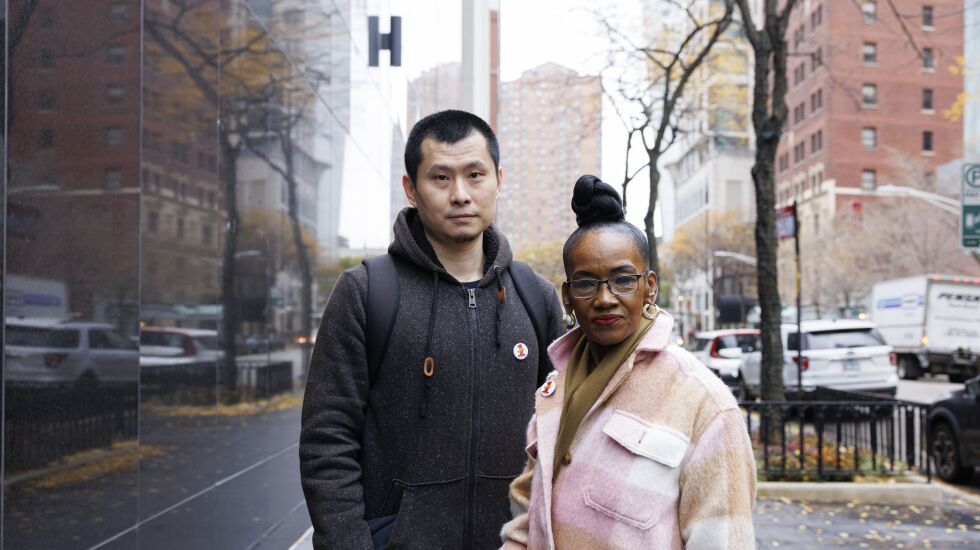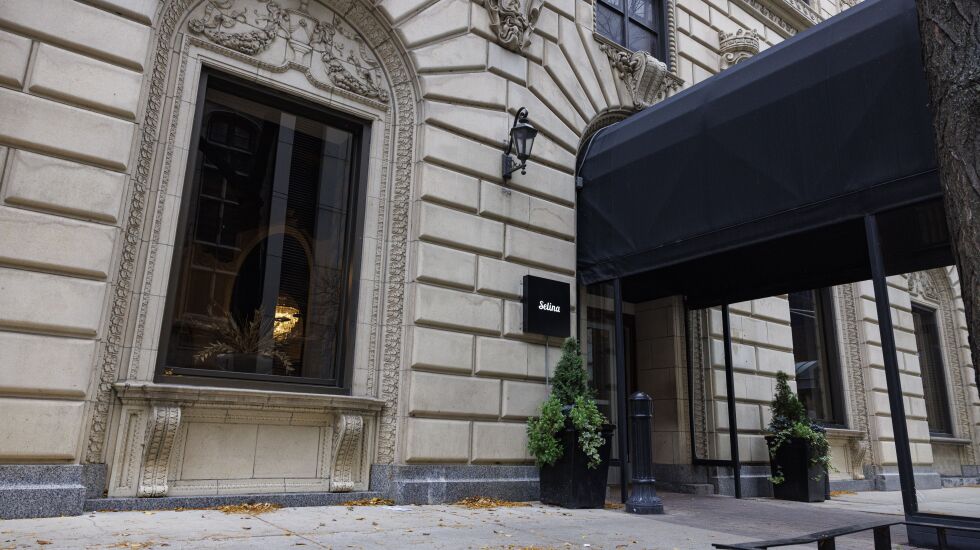
A boutique hotel right off the Magnificent Mile in Streeterville is becoming a new city shelter, this time “not for asylum-seekers” but for Chicago’s unhoused, according to the city.
The move to turn the Selina Chicago, at 100 E. Chestnut St., into a shelter comes as hundreds of Chicagoans sleep on the streets, thousands of migrants remain unhoused at police stations, and tension over what goes to which group has prompted citywide squabbles.
“We’re trying to care for all people,” said Mayor Brandon Johnson’s press secretary Ronnie Reese. “It’s about providing unhoused Chicagoans with a warm place to stay during the winter months.”
Reese noted that even before migrants began to be bused to Chicago, the city’s shelter system was at capacity, leaving many people sleeping outside in dangerous conditions last winter.
The shelter is expected to open next month, house 116 people and remain open for up to seven months. It will be funded through a state grant for emergency and transitional housing.
It is part of an unfolding city plan to provide “an additional 300 emergency shelter beds,” Reese said. It will be staffed by Equitable Social Solutions, a Kentucky-based company, according to the Illinois Secretary of State database.
In a call with reporter on Thursday, Cristina Pacione-Zayas, Johnson’s first deputy chief of staff, said the city chose the hotel because “it was not in a good financial state” to begin with and the city had made an offer to help the displaced workers find new employment.

For the 16 employees at the boutique hotel however, it means losing their jobs.
Over a dozen staff members — several holding up signs saying how long they had worked there — protested the change Wednesday.
Angeyleah Campbell, a housekeeping supervisor at the hotel for 25 years, said she was shocked when she learned in a letter from ownership on Oct. 31 that she would be losing her job when the layoffs take effect Friday.
“Why are we being kicked to the curb?” asked the grandmother of four. “I want to be able to keep food on the table and take care of my bills.”
Workers were taken by surprise after staffing the hotel last winter when it operated as a migrant shelter for two months, housing more than 100 families.
“During that time we continued to work and clean rooms and make sure asylum-seekers were taken care of,” said Campbell, 67.
Linwei Xiao, a front desk agent at the hotel for the last five years, recalled how migrants and hotel staff came to greet each other warmly.
“I felt it was my duty to help them, and I was happy to do so,” said Xiao, 38, who is originally from China.
Karen Kent, president of the union that represents hotel staff, did not say whether the union would take legal action against the hotel owners or the city, but she said laying off staff was unnecessary because union members had worked in past emergencies.
“We’re always ready to work in partnership during a crisis like this,” Kent said. “They’re ready to do this again, whether they’re asylum-seekers or other vulnerable populations.”
Michael Loria is a staff reporter for the Chicago Sun-Times via Report for America, a not-for-profit journalism program that aims to bolster the paper’s coverage of communities on the South Side and West Side.







